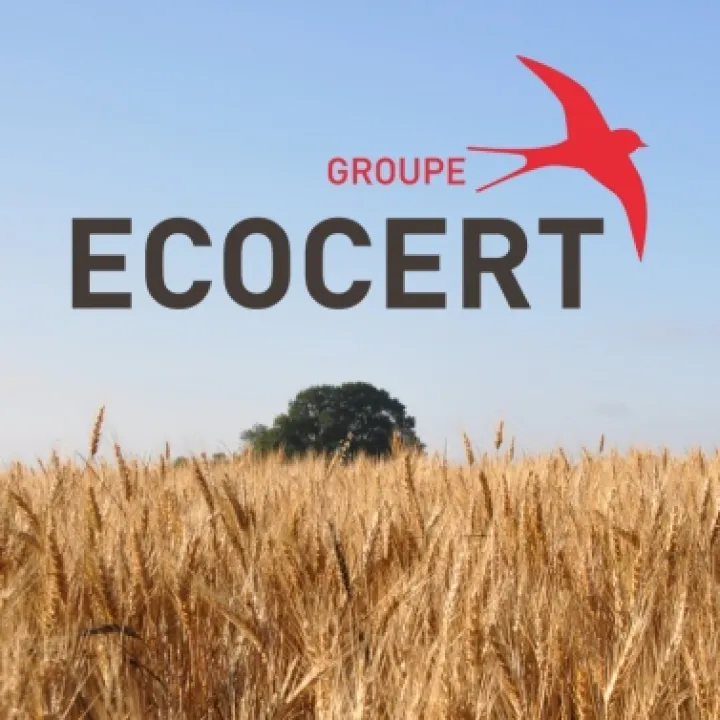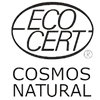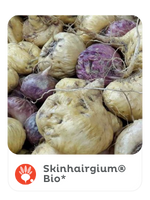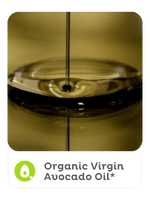What is the COSMOS certification?
The COSMOS certification is an international standard dedicated to organic and natural cosmetics, adressed to all actors of the cosmetics industry, from raw material manufacturers to cosmetic brands.
In light of the multitude of organic cosmetics labels, the European COSMOS certification was created in 2017 by 5 organizations: BDIH (Germany), Cosmébio (France), ECOCERT Greenlife (France), ICEA (Italy) and the Soil Association (UK). Their aim was to harmonize the different standards for organic and natural cosmetics across the different countries1 and offer a common certification for the European market.
For our customers, cosmetic product manufacturers, this certification is a pledge of our commitment to the quality and sustainability of our ingredients. In addition to guaranteeing the quality of our ingredients, this certification is also important for their consumers. It ensures total transparency regarding the raw materials used in finished products, thus promoting responsible consumption.

At Expanscience, ECOCERT is our COSMOS certifying body.
As a manufacturer of cosmetic ingredients, Expanscience relies on an independent certifying body to guarantee our compliance with the criteria that characterizes the COSMOS certification. Since 2010, ECOCERT Greenlife France has ensured that our ingredients comply with strict criteria concerning their origin, environmental impact and sustainability, from the sourcing of raw materials, through the production process, to final packaging, in accordance with Ecocert and the COSMOS certification.
The COSMOS certification criteria
The classification of ingredients into 5 categories is one of the fundamental aspects of this certification.
- Water
- Minerals and ingredients of mineral origin
- Physically processed agro-ingredients (PPAI)
- Chemically processed agro-ingredients (CPAI)
- Other ingredients: only those listed in Appendix V of the standard are authorized.
This classification establishes a framework for understanding the definition of authorized ingredients. Any ingredient used in a COSMOS-certified finished product must belong to one of the five categories. If an ingredient does not correspond to one of these classes, the finished product cannot be COSMOS-certified.
The COSMOS certification is also based on other strict criteria that apply to all products wishing to obtain this label. These criteria include :
Prohibition of certain ingredients
Sulfated compounds, petrochemicals, GMOs, parabens, phenoxyethanol, synthetic fragrances and ingredients on the IUCN list are banned to protect human health and the environment.
Environmental impact
Products must comply with strict ecological standards, notably through the use of sustainable packaging, defined by a list of authorized or prohibited materials, and by respecting the 4R criteria (Refuse, Reduce, Replace and Recycle).
Control of ingredients
All non-organic ingredients used in a product must be verified and approved according to the COSMOS standards (COSMOS Approved) for the final product to obtain the certification.
Manufacturing processes
Processes must reduce the ecological footprint, by promoting green chemistry and complying with a strict list of processes and solvents authorized by the COSMOS standard, which ensures that practices comply with the ecological and ethical values of certification.
Cleaning agents
Cleaning agents used in manufacturing processes must be approved by the certifying body.
Let's decipher the different levels of the COSMOS certification!
As you may have noticed, we can find 2 different labels on finished product packaging, since there are 2 distinct levels to the COSMOS certification.
The upper part of the logo represents the certification body, in this case ECOCERT Greenlife France.

This organic label certifies that the ingredients making up a finished product are of organic origin.
To obtain the COSMOS Organic certification for your finished products, in addition to the criteria listed above, you'll need to meet additional specific requirements.
The COSMOS Organic label requirements
- Percentage of organic ingredients: At least 20% of ingredients must be organic and COSMOS-certified (only 10% for rinse-off and powders). In addition, 95% of PPAI must be sourced from organic agriculture. The remainder of the formula can be completed with COSMOS Approved ingredients.
- Exclude water and minerals: Water and minerals are not considered organic because they are not sourced from agriculture.
- Source responsibly: Palm oil must come from organic or sustainable sources, and certain PPAI and CPAI must be organic according to a defined list.
- Transparent labelling and communication: COSMOS Organic-certified finished products must meet strict standards, including the mention of the percentage of organic ingredients, the COSMOS logo and the mention of the certifying body.

This label certifies that the majority of ingredients in a finished product are of natural origin.
The COSMOS Natural label applies to finished products formulated exclusively from natural ingredients, of natural origin or COSMOS Approved.
The COSMOS Natural label requirements
- Percentage of natural ingredients: at least 95% of the ingredients in the formula must be of natural origin. Unlike the COSMOS Organic certification, there is no minimum percentage of organic ingredients. (2)
- Transparent labelling and communication: the exact percentage of certified natural-origin ingredients must be clearly indicated on the finished product's packaging.
- Note: an ingredient of natural origin is defined as any natural ingredient (such as water, minerals, or ingredients derived from crops or livestock) that has undergone physical or chemical transformation.
The COSMOS certification and sustainability

The COSMOS certification promotes sustainable practices in cosmetics by setting strict standards for ingredient sourcing, responsible manufacturing and environmental management.
It guarantees responsible use of natural resources, respect for biodiversity and a minimized environmental impact. By committing to this certification, companies contribute to environmental protection and offer transparency on the composition of their products.(3)
Expanscience and the COSMOS certification
At Expanscience, we offer cosmetic active ingredients of 100% natural origin, extracted from fruits, plants or micro-algae.
Our COSMOS Organic certified ingredients
Some of the ingredients and actives in our portfolio are COSMOS Organic certified, guaranteeing a percentage of ingredients of organic origin.
You can identify them by the “Bio*” in their product name, as well as by the COSMOS certified logo and the obligatory ECOCERT mention on each product page.

*Certified xx% Organic by Ecocert Greenlife according to COSMOS standards.
Our COSMOS approved ingredients
Another part of our portfolio is made up of COSMOS Approved ingredients and actives. These materials, although not organic, are rigorously verified, approved and accredited in accordance with COSMOS standards. They are authorized in the formulation of certified COSMOS Organic or COSMOS Natural finished products.
You can identify them by the COSMOS Approved logo and the obligatory ECOCERT mention on each product page.

*Raw material approved by Ecocert Greenlife, compliant with the COSMOS standard.
Find out more on our full catalog of ingredients to formulate in your COSMOS Organic or COSMOS Natural formulas.
Frequently asked questions about the COSMOS certification
What is the Cosmos Organic certification?
- The COSMOS Organic certification is the organic certification for cosmetics. It certifies that the ingredients used in a cosmetic product are of organic origin.
How to obtain the COSMOS certification?
To obtain the certification, you need to contact an independent certifying body, such as ECOCERT Greenlife France. A documentary audit, followed by an on-site audit, will be carried out to verify compliance with all aspects of product manufacturing. The auditor will present his or her findings, including any non-conformities. If the certificate is awarded, annual audits will then be carried out to ensure continued compliance with the COSMOS standard.










